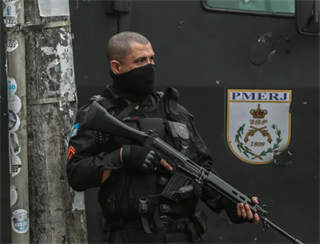Drugs ‘trilemma’: how to halt the deadly trade while still ensuring development and peace
The raid on a favela in the Jacarezinho area of the city represents one of the deadliest police operations in Rio in recent years.
11 May 2021The deaths of 25 people in a police raid on drug gangs in Rio de Janeiro have brought the “war on drugs” in developing countries into sharp focus once again. The raid on a favela in the Jacarezinho area of the city represents one of the deadliest police operations in Rio in recent years and has been condemned by the UN, which has called for an independent investigation.

This violence is but one incident in a “war on drugs” being enacted in many parts of the world in which thousands have died and that has generated tremendous harms – not least to the health, livelihoods and human rights of poor communities living in the borderlands of drug-producing countries.
Given these harms, it has become increasingly mainstream to advocate for approaching drugs as a development issue, so that drug-related goals are more aligned with the development and peacebuilding objectives of the UN’s sustainable development goals, which provide “a shared blueprint for peace and prosperity for people and the planet”.
New research on drugs, conflict and development in the borderlands of Afghanistan, Colombia and Myanmar shines a spotlight on the tough trade-offs and the potential pitfalls of integrating the competing policy goals of eradicating the illegal drugs trade, securing peace and ensuring sustainable development – something that tends to get skirted over or hidden in policy debates.
Share this on: